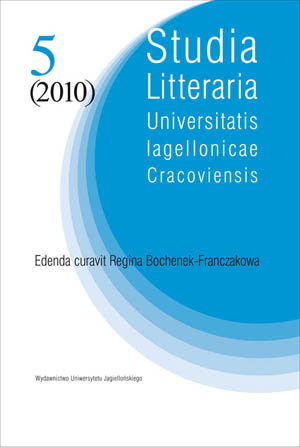Le désert dans le Roman d’Alexandre d’Alexandre de Paris (XIIe siècle)
The Desert in the Roman d’Alexandre of Alexandre de Paris (12th century)
Author(s): Katarzyna DybełSubject(s): Literary Texts
Published by: Wydawnictwo Uniwersytetu Jagiellońskiego
Keywords: the motif of a desert; Alexandre de Paris; orient; Roman d’Alexandre; medieval Occident
Summary/Abstract: The desert is a favourite setting for adventures in the Roman d’Alexandre composed by Alexandre de Paris, around 1188. The space of anxiety, of fear, of transgression, of initiation into the mysteries of life and death, it all belongs to one of the most important parts of the medieval imagination, fed by myths and tales of exotic travels, inherited from oriental and occidental Antiquity. There are many things going on in this area, such as quests, conquests, victories, defeats, friendships, love, hardships, death and treason. The motif of a desert becomes a dream carrier, expressing the protagonists’ will of surpassing themselves, the will which could be shared with the public to whom the text was addressed. Instead of being a simple element of oriental decoration, it expresses a certain vision of the world, as it transforms itself from a simple geographic and climatic space into a mythic Le désert dans le Roman d’Alexandre d’Alexandre de Paris (XIIe siècle) space. Its representation, connected with the omnipresence of marvels, echoes the images of the Orient, as they were perceived by the medieval Occident. The marvels of the desert, seen as projections of desires, dreams, and occidental traumatisms and nightmares, create a complex figure of a mysterious Elsewhere – dangerous, disturbing, fascinating and irresistibly attractive.
Journal: Studia Litteraria Universitatis Iagellonicae Cracoviensis
- Issue Year: 2010
- Issue No: 5
- Page Range: 37-46
- Page Count: 10
- Language: French

